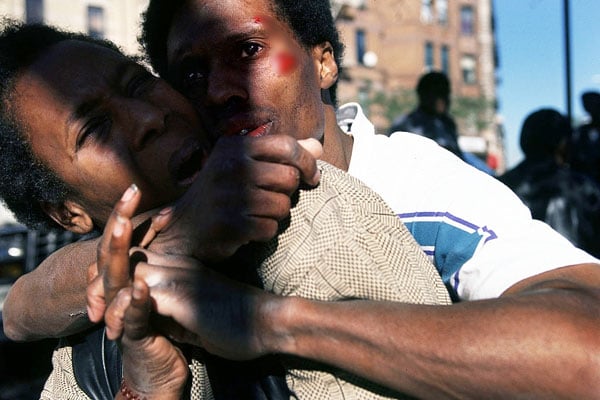Prime
Why it is difficult for women to walk away from abusive relationships

What you need to know:
The hope that things will get better has a lot of people hanging in abusive or festering relationships. Many hold onto false hope that their partners will change some day. But sometimes, it is more than hope that keeps one from taking the final step towards ending a bad relationship. The reasons could be as basic as social and financial compulsions.
“I will never divorce you till I come back to Uganda, but if you want you can go on and sin,” Zhurah Nakityo shares a message she received from her husband after she had filed for a divorce in 2018.
In 2009, Nakityo and Fahad (not real name) first met as workmates at a clearing and forwarding company. The two were friends, but went separate ways, until September 2012, when they bumped into each other. For the duo, this might have been fate.
After nine months, the two decided to make it official. Like many women, Nakityo was excited about her new journey.
“I never saw any red flags, but months after tying the knot, the jolly, loving, caring, friendly, calm and open man I fell in love with was a shadow of his former self. I discovered he had rekindled his love with an ex,” she recalls. She decided to keep quiet in order to save her marriage. Little did she know more ugly incidents would be unveiled. And she chose to ignore to keep up appearances.
Nakityo says disrespect, physical and emotional torture became the new definition of her marriage. But then, who would believe her if she opened up about it? Fahad was that loving and caring husband to everyone else except Nakityo.
There was no way she would run to her father to tell him that Fahad had turned into a monster. So many regrets, so many what-ifs, so many flashbacks … So many mistakes.
“Are you sure this is the man you want to marry?” Nakityo recalls her father asking her a couple of times before he officially handed her over to her husband in a nikah ceremony in 2013.
“He would text and flirt with his lovers on phone in my presence. We were married but I was so lonely,” she narrates.
Nakityo could not reveal anything to her siblings either. The only person she would confide in was her cousin, who kept pushing her back into an abusive marriage. Guma (Keep strong) is the only comforting word she ever heard.
“Each time I sought refuge at my cousin’s home, my husband would come and apologise and promise to be a better man. Only to return to his filthy ways days later,” she recollects.
No support for marrieds
According to Sylvia Diana Winter, a divorce lawyer with Allan and Partners, when a wedding is announced, family, friends, relatives, workmates and acquaintances are willing to offer support to make the ceremony a success.
She adds that religious leaders are more than willing to take people intending to get married through a month’s counselling sessions. “For parents, this is one of the moments they look forward to in life. It comes with prestige, and watching their daughter walk down the aisle gives them a sense of fulfilment,” says Winter. However, when things go wrong, and by any chance, divorce or separation find their way into the relationship, the support flips out of the window.
“Once a wedding is done, nobody cares anymore about that new couple. That is why women choose to endure because there is no one willing to stand by their side,” Winter explains.
Lack of a support system
Winter adds that when women get married, they do not find it important to stick to their old friends. In fact, many women tend to look down on their unmarried friends, thinking they are not worth marriage discussions and cannot offer any marital advice.
“A married woman feels comfortable associating with fellow married women, who, in most cases, tend to measure the pain you are going through and compare it with theirs. Yours just cheats, but does not beat you, mine does both. At least yours buys food and pays rent. Such comparisons make women think their spouses are better and not abusive,” Winter explains.
On the other hand, Monica Lubega, who has been married for the last 25 years, believes parents have abdicated their roles, something that has turned their children into captives of marriage.
“On many occasions, I have heard parents give speeches and announce that their children no longer have space in their home. You can come and visit home, but you do not own a room anymore like you used to when you were growing up,” she says. Lubega says such statements make marriage a prison for women because the first person they would turn to in case of anything has shut the door on them.
Endurance
Like many women, Nakityo notes that to the outside world, her marriage was perfect. On the inside, however, marriage was taking toll on her. She was battling with emotional trauma. She wanted to end it, but did not know how to go about it.
In fact, she wondered whether her mother had endured the same pain. But she would not discuss with her because of the respect her mother accorded her son-in-law. “Ebyo’munju tebitotolwa” (marital issues should be kept confidential). I decided to go mute with hoping that someday he would change,” she adds.
Social misfits
In the African traditional setting, your husband beating you or cheating on you is not reason enough for you to leave a marriage.
“If he stops providing for the family, one can hear you out,” Nakityo recalls the words her husband’s aunt said, who she thought was in a better position to help her solve their marital challenges.
Winter says many women are enduring abusive marriages simply because they have children’s interests to protect. Children whose father will not foot their bills once she decides to walk away with them.
“Many men do not offer any child support if a woman walks away. More than 50 percent of victims can endure anything for their children to have financial advantages. The thought of this has made many stay,” says Winter.
Trauma and low confidence
“Imagine the impact this emotional rollercoaster can have on your self-esteem! There was a time he sent me nudes of him with another woman. This traumatised me more. But he denied that he did not send the photos, yet they were from his cell number.”
This made Nakityo feel worthless that at some point, she contemplated suicide. Nakityo says before this incident, her husband had relocated to US in 2014, leaving her and the child in their marital home. She wanted to settle elsewhere, but was advised against it, since her tormenter was away.
Winter says it takes immense effort to convince a shattered individual that they deserve better than what life has doled out to them. “Many believe, better the devil you know than an angel you do not know.”
Religion
In 2017, Nakityo decided to turn to her religious leaders to seek for talaaq (an Arabic word to mean divorce), but she says the sheikh that presided over their nikah in 2013 told her to wait until her husband returned.
Monica Lubega, a Catholic, says when one is married in church, it is for better and for worse, no matter the situation. “The only time I have heard of a couple being granted divorce was on grounds of sorcery, besides that, you will hang in there.”
Denied divorce
In 2018, Nakityo decided to go to courts of law and file for a divorce. Through her husband’s lawyer, she was ordered to vacate her marital home with immediate effect before any court sessions were held. The other condition was for her to grant child custody to him when their child turned seven.
“I left the house, but I could not allow my child to be taken away. On the first court sitting, his lawyer was a no-show to date. The last time I heard from my husband was through a text message reading; I will never divorce you till I come back to Uganda, but if you want you can go on and sin.”
Social status
Whenever marriage fails, women are branded failures. Nobody appreciates that while someone could have put in the work to make a marriage work, some differences are irreconcilable.
According to Winter, when a man is called forth, he identifies himself as Mr. so and so, whether he has a ring on his finger or not. But when a woman introduces herself as Mrs., she is already given an identity of a man in the eyes of the public.
Many women find their identity in marriage and not in their careers no matter how successful they are. That is why many endure abusive relationships because that is what society associates them with. To some women, holding onto their husbands’ name is prestigious.
Braving the shame of a failed marriage
Ben Nsubuga, a marriage counsellor, explains that when a man separates with his wife, they have no names tagged no to them, but women who decide to walk way are branded all sorts of names such as nakyeyombekedde and bufumbo bwalema.
“That is why each time this woman thinks of such names, if they are not confident enough, they will coil back rather than give up on that status,” he adds.
“This is common among famous people. Many wish to walk away, but taking on their maiden name again and taking off the ring may be difficult because it attracts many questions, which they are not ready to answer,” Nsubuga explains.
Lack of self-reliance
“As women, we are not groomed to be self-reliant or to financially and independently provide for ourselves. That is why you find a woman fighting for a house. Sometimes it is not because they cannot afford to pay rent, they fear financial obligations,” Winter expresses.
She adds that even the most liberated women will tell you “omusajja akuwa ku sente aba mulungi” (a man who gives you some money is a great catch). Women want to be given because they have been conditioned that what they have is not enough.
She wants to buy a car, but will ask her husband to help decide which type of car to buy. She takes her car to a garage but still calls her husband to send money for the mechanic. Sometimes we choose to be foolish,” Winter says.
You deserve better
According to the lawyer, the right reasons for failure to walk away, are embedded in mental and physical well-being, as well as personal growth. She warns that should a relationship become abusive or stunt personal growth, it is better to shed it off, no matter how hard it may be.
Bigger picture
Monica Lubega, who has been married for the last 25 years, believes parents have abdicated their roles, something that has turned their children into captives of marriage.
“On many occasions, I have heard parents give speeches and announce that their children no longer have space in their home. You can come and visit home, but you do not own a room anymore like you used to when you were growing up,” she says. Lubega says such statements make marriage a prison for women because the first person they would turn to in case of anything has shut the door on them. Experts, however, believe that more than 50 percent of domestic violence victims endure anything for convenience and for their children to have financial advantages.




